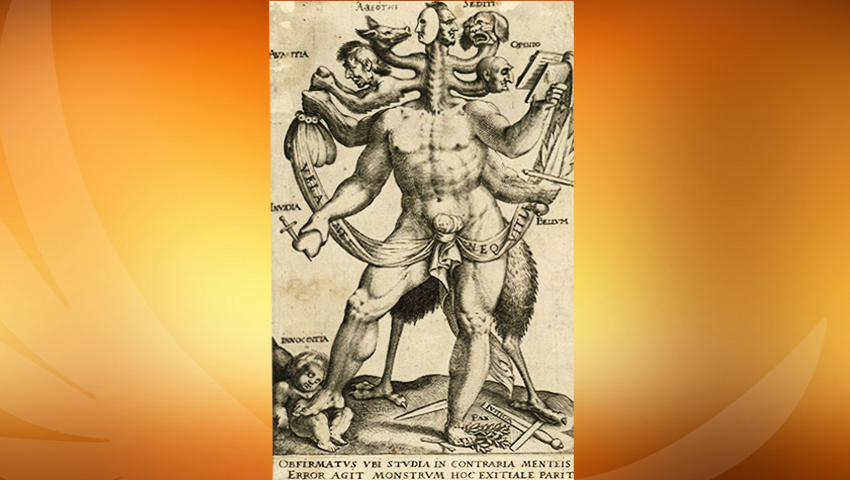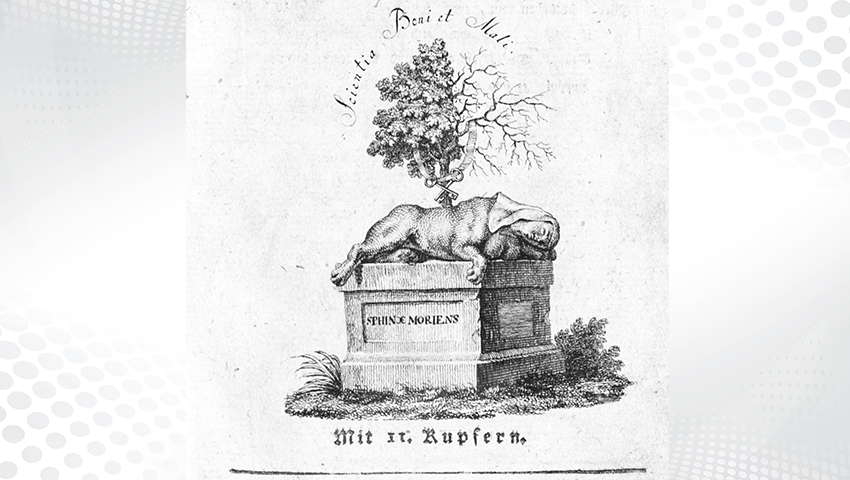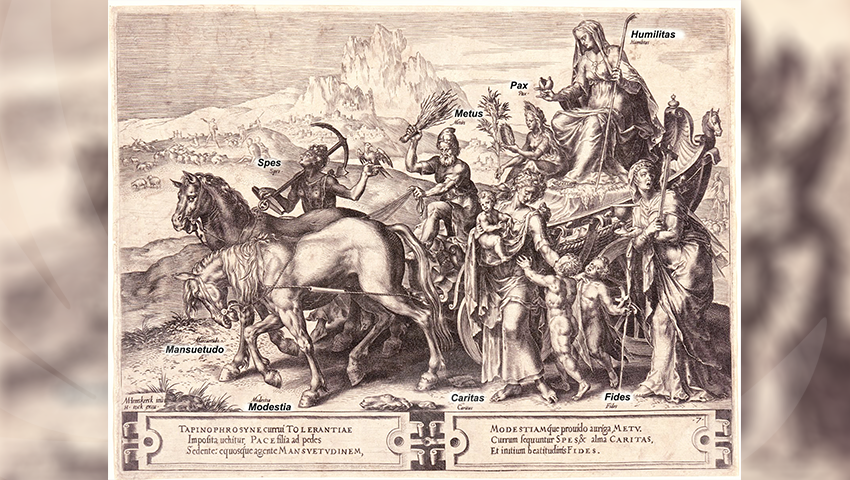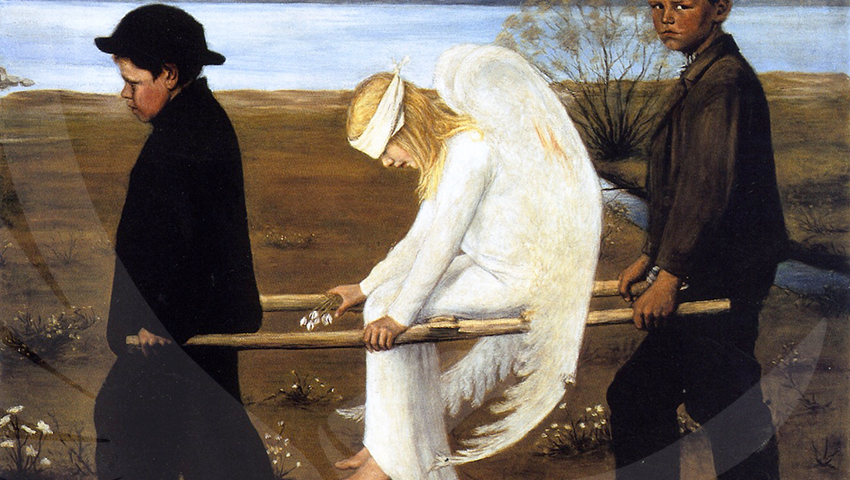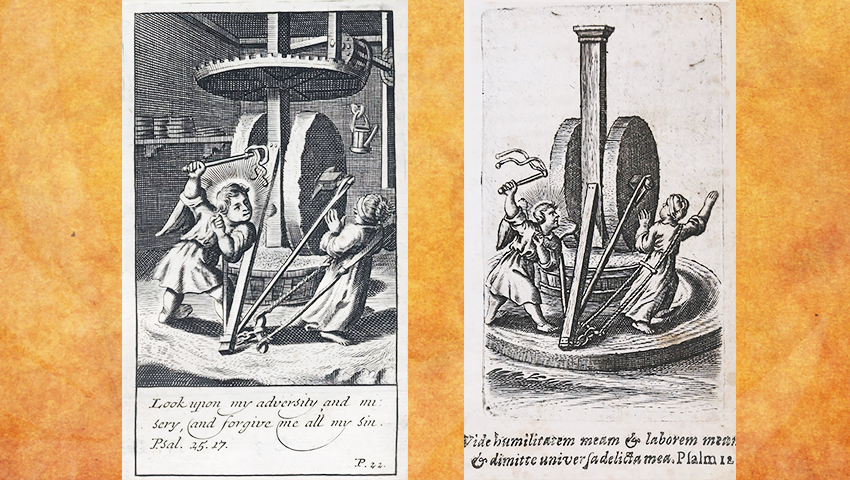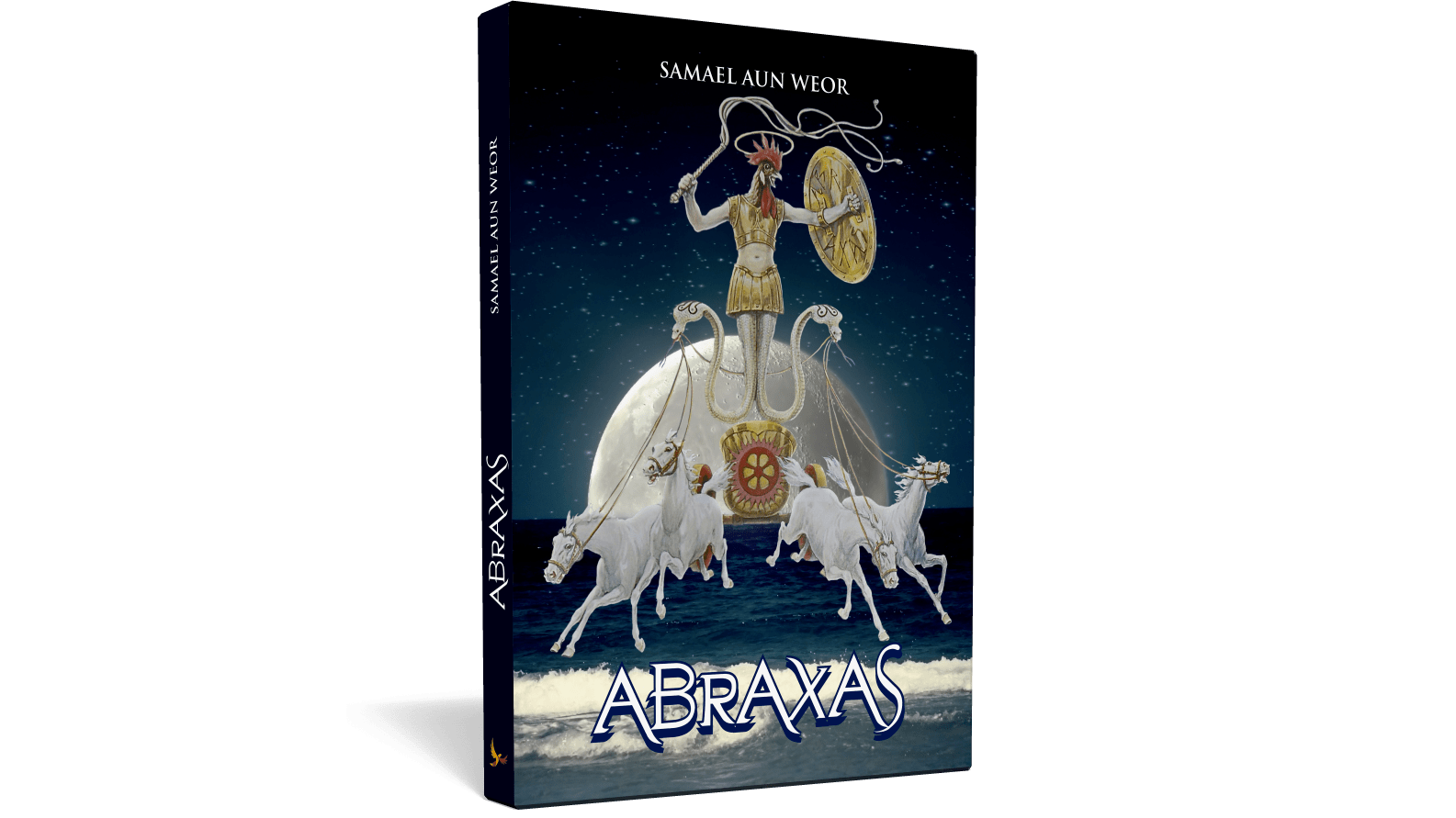Dearest readers:
It is with great pleasure I send you the present engraving that we will gnostically entitle…
…THE CONTRADICTIONS OF THE ANIMAL EGO
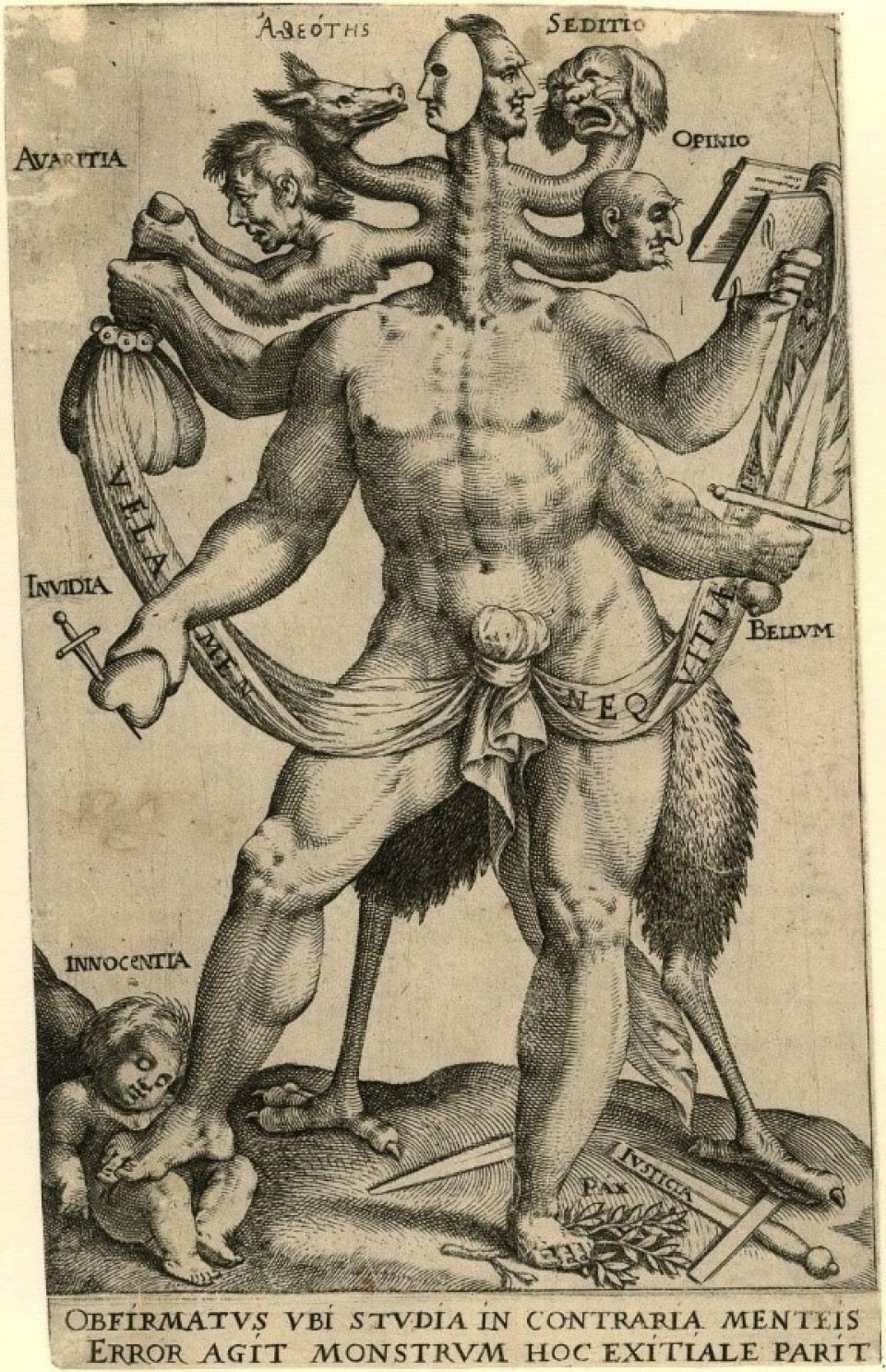
To study this magnificent engraving, first of all we have to say that it was created between the years 1575-1618 and is found in the Rijksmuseum, located in the city of Amsterdam ─Holland─.
This print shows a monster that has four legs, four arms, and five heads. Each head represents a human aberration. In its hands it carries evil attributes as well.
For a time this engraving was used by Calvinists to attack a character named James Arminius, who created religious groups to combat Calvin and his doctrine. Arminianism was born in the Netherlands precisely as a reaction to Calvinism around the 17th century.
However, through Gnosis we can go further and focus on what we call the PLURALITY OF THE “I”, which, being a monster, creates in our psyche states of total disequilibrium and contradictory to the sublime precepts of religions.
First we have to focus on the monster itself, which carries on its chest the word WARMINIAEN. This word is a mockery of the doctrine of Arminianism.
Now, analyzing the five heads of this monstrosity we first observe one that has a human appearance, which wears a mask on the back. Such a mask is the symbol of the personality that we fabricate in every existence. Likewise, we must say that this head is accompanied by the word FRAUS, pointing out to us the fraud that we are before the Solar Hierarchies. The other part of that head looks directly at another that has an animaloid shape and is accompanied by the Latin word SEDITIO, which is to be translated as ‘sedition’ or ‘rebellion’. This head may well point us to the continual rebellion that keeps our mind engaged in the battle of the antitheses.
Next, we can contemplate that there is another humanoid head that is in the attitude of reading a text or book that the monster holds with one of its arms. Above this head we find another Latin word, in this case it tells us OPINIO, a word that we must translate as ‘opinion’ or ‘opinions’. Precisely, that is the task of our animal mind, always affirming opinions that itself contradicts with others later on.
On the other side of the monster’s trunk we first find another head of something looking like a pig. This head is accompanied by the Latin word ATEÓTHS, meaning ‘atheism’. All of us who love Gnosis know very well that atheism is typical of Kalkian personalities full of concepts and preconceptions on which they feed, this is what atheism is like, it is like a pig that feeds on blasphemies and the denial of everything that smells of divinity.
Under the head that symbolizes atheism we see another that also has a certain human appearance. This head is accompanied by two smaller arms and a third arm of the monster, and with these limbs it tightly grasps a sack of money. The word that accompanies this other head is AVARITIA, which must be translated as ‘greed’. This shows us that, unfortunately, the life of the humanoids of the Earth is spent in the pursuit for material wealth, goods and accumulation of valuable things. Such is greed, dear reader.
Now, when we describe the monster and its attires, we are struck by a fabric that forms a knot at the level of its genitals. On this fabric are two Latin words, namely: VELAMEN NEQUITIAE, translation: ‘veil of depravity’. As Gnosis emphasizes to us, the “I” is always present in the five centers of our organic machine and, specifically, in the sexual center, which lives vampirizing our sexuality through the aberrant vice of fornication or depravity.
In one of the monster’s hands we see that he has caught a heart pierced by a dagger. This part of the engraving is accompanied by the Latin word INVIDIA. Envy, patient reader, is always present at the bottom of many betrayals of loyalty, which is why it generates all kinds of conflicts among the human masses. Every transcendental ideal is destroyed by envy when it gets into action.
Looking at the second right arm of the monster, we can see that in his hand he is wielding a sword. That sword is supported by the Latin word BELLUM, translation: ‘war’. All these horrendous characteristics are what cause, throughout history, wars that seem endless within our societies. For this reason, this engraving shows us, in the lower part, a laurel branch that is trampled by the monstrosity of the “I”. Normally, all wars have egoic origins, even if they want them to be presented as restorers of democracies or as liberators of the human being. That is the big lie that wars of all kinds hide.
In the same way, and very pitifully, a sword appears, the sword of justice, split into two pieces. In other words, we are told that justice is broken, destroyed, torn to pieces by the action of our psychological aggregates. That is the cause of the disorder that prevails in our world. This symbol of fairness, now shattered, has next to it the Latin word IUSTICIA, which has to be interpreted as ‘justice’.
And finally, we see a child who is also trampled by the monster. That child represents our Essence, our lost innocence, and therefore such a child is accompanied by the Latin word INNOCENTIA, which points to the aforementioned virtue of innocence. So we are, dear friends, mentally and spiritually deformed, and we could only abandon this miserable condition by means of a profound revolution of our Consciousness, as contemporary Samaelian Gnosticism emphasizes to us.
Although it may seem incredible, we have to say that in the internal worlds, more clearly in the infradimensions of nature – avernus, hells, tartarus or avitchi of religions– it is possible to find lost souls that are involuting with these monstrous deformations of animal-like character.
At the bottom, outside the engraving, we find this Latin phrase:
«Obfirmatvs vbi stvdia in contraria menteis error agit monstrvm hoc exitiale parit».
Translation: ‘When reinforced error leads minds to contrary efforts, stop this dismal monster.’
I add some final sentences for your reflection:
“Men are not careful enough to guard themselves against what they must avoid.”
Horacio
“Imprudence always tends to precede calamity.”
Appiano
“Every child, at birth, brings us the message that God has not lost hope in men.”
Rabindranath Tagore
“There is nothing as terrible as the misfortune of losing one’s innocence.”
Chateaubriand
“The great secret of being happy is to be innocent.”
Phocylides
DEI GRATIA.
─’By the grace of God’─.
KWEN KHAN KHU






